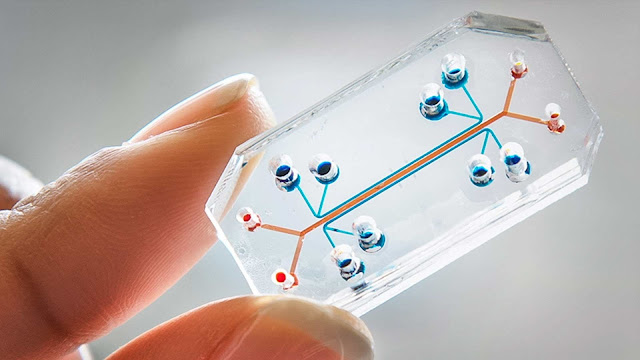Introduction: The organ-on-a-chip technology has revolutionized the field of biomedical research by providing a platform that mimics the complex functions of human organs. This innovative approach offers promising solutions for drug discovery, toxicity testing, and personalized medicine. As the demand for more accurate and efficient models increases, the organ-on-a-chip market is experiencing significant growth.
Redefining
Biomedical Research: Organ-on-a-chip technology involves the
creation of microfluidic systems that replicate the structure and function of
human organs, such as the liver, heart, lungs, and kidneys. These microscale
devices provide a realistic environment for studying cellular responses, drug
metabolism, and disease progression. With their ability to recreate
physiological conditions, organ-on-a-chip models offer distinct advantages over
traditional cell culture and animal models. They enable researchers to obtain
more accurate data, reduce the need for animal testing, and accelerate the drug
development process.
The Global
Organ-On-Chip Market had a value of USD 57.05 million in 2021 and is anticipated to grow to USD 144.31
million by 2029, displaying a CAGR of
12.30% over the forecast period of 2022-2029.
Market
Growth and Key Players: The organ-on-a-chip market is
witnessing rapid growth, driven by the increasing demand for alternative models
in pharmaceutical and biotechnology industries. According to market reports, during
the forecast period. Several key players are actively contributing to this
market's expansion by developing innovative organ-on-a-chip models and
platforms. Companies like Emulate Inc., TissUse GmbH, CN Bio Innovations, and
Hesperos Inc. are leading the way in commercializing organ-on-a-chip technology
and establishing partnerships with pharmaceutical giants.
Applications
and Advantages: Organ-on-a-chip technology holds
immense potential across various applications, including drug discovery,
toxicity testing, disease modeling, and precision medicine. These platforms
enable researchers to evaluate the efficacy and safety of potential drug
candidates in a more physiologically relevant context, leading to better
predictions of human responses. By providing real-time monitoring and analysis,
organ-on-a-chip models allow for more accurate assessment of drug metabolism,
toxicity, and efficacy, reducing the risk of late-stage failures in clinical
trials. Furthermore, these devices offer the opportunity for personalized
medicine, as patient-specific cells can be incorporated into the chips to study
individual responses to treatment.
Future
Outlook and Challenges: The organ-on-a-chip field
continues to advance rapidly, with ongoing research focused on enhancing the
complexity and functionality of these models. Challenges still remain,
including the need for standardization, scalability, and cost reduction.
However, the potential benefits and transformative impact of organ-on-a-chip
technology on drug discovery and personalized medicine make it a promising area
for future investment and development.
The Organ-On-A-Chip Market is poised for
remarkable growth, driven by its ability to offer physiologically relevant
models for drug development and disease modeling. As the technology matures and
becomes more widely adopted, we can expect to see significant advancements in
drug discovery and personalized medicine, leading to improved patient outcomes.




0 Comments